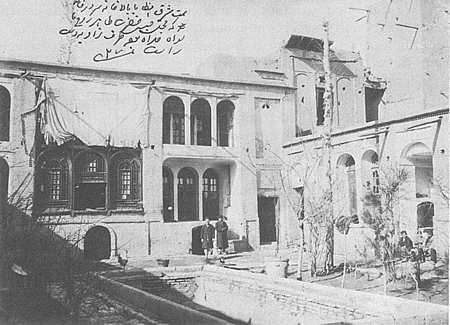The views expressed in our content reflect individual perspectives and do not represent the authoritative views of the Baha'i Faith.
Let deeds, not words, testify to thy faith, if thou art a man of true learning. Cease idly repeating the traditions of the past, for the day of service, of steadfast action, is come. – Tahirih, quoted by Abdu’l-Baha in Memorials of the Faithful, p. 200.
One of the many reasons for the abolition of the entire concept of apostasy in the Baha’i teachings, undoubtedly, emerged from the horrific and bloody impact such repressive laws had on the earliest believers in this relatively new Faith.
Not that long ago, most of the Islamic schools of legal thought (fiqh) considered apostasy a capital crime, one of the six Hudud, or crimes against God. If you were judged an apostate (in Arabic, a murtad), you typically received a sentence of death, to be carried out after a few days of imprisonment, when you could repent and avoid execution.
Those harsh punishments applied mostly to men.
Women, on the other hand, usually didn’t receive the death penalty. Although some Muslim law called for the execution of female apostates, much jurisprudence and almost all actual practice recommended holding women in prison and beating them repeatedly until they recanted. With women seen as property, and rarely educated, the ancient Muslim laws treated female apostates quite differently.
But in a famous, breakthrough case that continues to resonate today—the apostasy trial of the great Persian poet and feminist Tahirih—the authorities made a notable exception. Tahirih, an unusual example of an educated woman in 19th century Persia, had become famous for not only her poetry, her advocacy for the rights of women and her outspoken courage, but for her open and enthusiastic embrace of the new Babi Faith, the forerunner of the Baha’i Faith. Here, excerpted from the eminent French historian A. L. M. Nicholas’ book Siyyid Ali-Muhammad dit le Báb, is one story of her trial:
What I now begin to relate regarding the circumstances of her [Tahirih’s] martyrdom has been obtained from trustworthy informants, some of whom were themselves witnesses of the events I am attempting to describe. Her stay in Tihran was marked by many proofs of the warm affection and high esteem in which she was held by the leading women of the capital. She had reached, indeed, in those days, the high-water mark of her popularity. The house where she was confined was besieged by her women admirers, who thronged her doors, eager to enter her presence and to seek the benefit of her knowledge… She remained in Tihran a long time receiving numerous visitors both men and women. She aroused the women by showing them the abject role which Islam assigned to them and she won them over to the new religion by showing them the freedom and respect which it would bestow upon them… These discussions might have continued at length, if Mirza Aqa Khan-i-Nuri had not been appointed Sadr-i-Azam. The premier ordered Haji Mulla Muhammad Andirmani and Haji Mulla Ali Kini [two high-ranking Muslim clerics] to call on her in order to examine into her belief. They held seven conferences with her in which she argued with much feeling and affirmed that the Bab was the promised and expected Imam. Her adversaries called her attention to the fact that, in accordance with the [Muslim] prophecies, the promised Imam was to come from Jabulqa and Jabulsa. She retorted feelingly that those prophecies were false and forged by false traditionalists and, as these two cities never existed, they could only be the superstitions of diseased brains. She expounded the new doctrine, bringing out its truth, but always encountered the same argument of Jabulqa. Exasperated, she finally told them: ’Your reasoning is that of an ignorant and stupid child; how long will you cling to these follies and lies? When will you lift your eyes towards the Sun of Truth?’ Shocked by such blasphemy, Haji Mulla Ali rose up and led his friend away saying, ’Why prolong our discussion with an infidel?’ They returned home and wrote out the sentence which established her apostasy and her refusal to retract, and condemned her to death in the name of the Qur’an! – pp. 446-447.
Tahirih died soon after, strangled by a drunken executioner on the orders of the mullas and thrown into a well:
Thus ended the life of this great Babi heroine, the first woman suffrage martyr, who, at her death, turning to the one in whose custody she had been placed, had boldly declared: “You can kill me as soon as you like, but you cannot stop the emancipation of women.” – Shoghi Effendi, God Passes By, p. 75.

















Comments
Sign in or create an account
Continue with Googleor